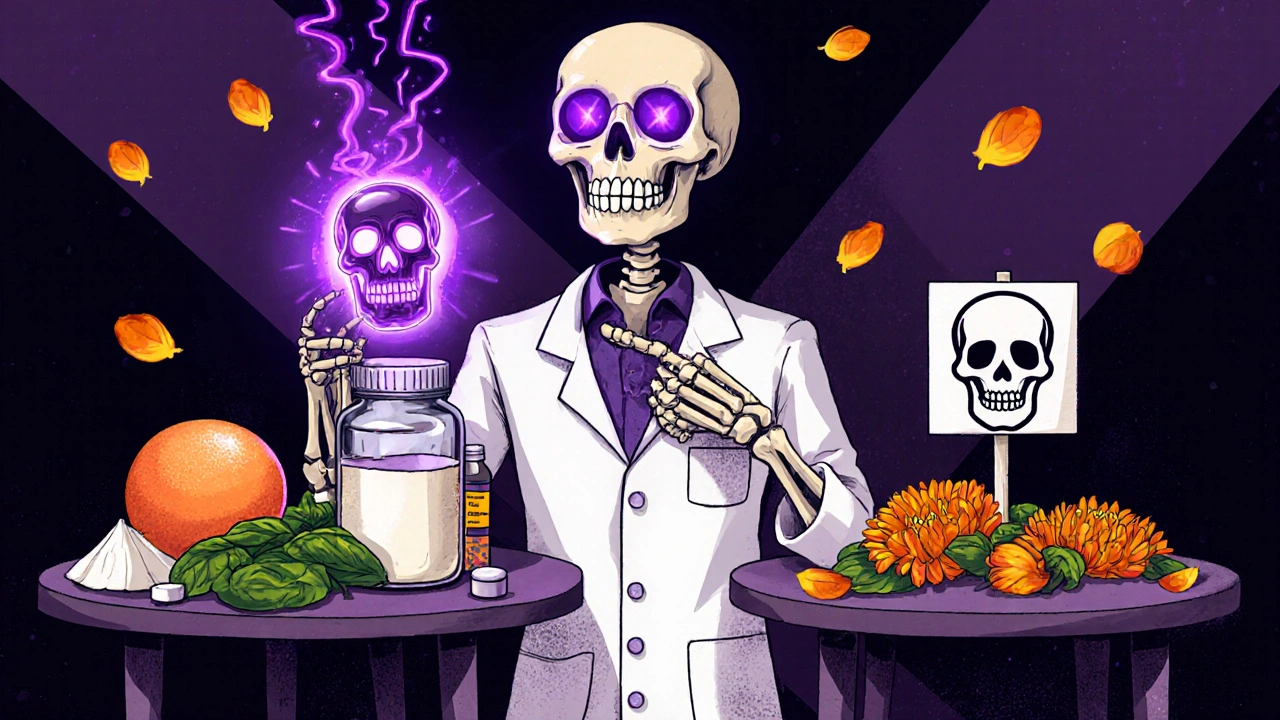Food and Medication Interactions: What You Need to Know Before You Take That Pill
When you take a pill, it doesn’t just disappear into your system quietly. What you eat—whether it’s grapefruit, spinach, or a cup of coffee—can change how that drug works, sometimes dangerously. Food and medication interactions, happen when what you consume affects how your body absorbs, breaks down, or responds to a drug. Also known as drug-food interactions, these aren’t rare quirks—they’re common, underreported, and often avoidable. Think of your body like a busy highway. Drugs are cars trying to get through. Food? It’s construction, detours, or roadblocks that can slow them down, speed them up, or send them off course.
Some interactions are well-documented. Grapefruit juice, for example, can stop your liver from breaking down statins, blood pressure meds, and even some fertility drugs—leading to toxic levels in your blood. Dairy can bind to antibiotics like tetracycline, making them useless. Leafy greens high in vitamin K can fight the effect of blood thinners like warfarin. And caffeine? It can amplify side effects of stimulants or interfere with sleep meds. These aren’t theoretical risks. Studies show that adverse drug reactions, harmful side effects caused by medications, often linked to what’s eaten alongside them are one of the top reasons people end up in emergency rooms. And pharmacogenetic testing, a way to predict how your genes affect your response to drugs is starting to help doctors spot who’s most at risk before they even prescribe.
It’s not just about avoiding certain foods. Timing matters. Some meds need to be taken on an empty stomach. Others work better with food to reduce nausea or improve absorption. Skipping meals while on diabetes drugs? That’s a recipe for low blood sugar. Drinking alcohol with painkillers or antidepressants? That’s asking for trouble. Even supplements like St. John’s wort or magnesium can mess with your prescriptions. The truth is, most people don’t realize their morning smoothie or afternoon tea could be undoing their treatment. And when you’re trying to get pregnant, managing PCOS, or dealing with kidney issues—like many of the conditions covered in the posts below—these interactions become even more critical.
You don’t need to memorize a long list of forbidden foods. But you do need to ask the right questions: Does this med need to be taken with food? What should I avoid? Could my vitamins or coffee be interfering? The posts here don’t just list risks—they show you real examples: how folic acid helps in IBD, why grapefruit can wreck your hormone therapy, how diet tweaks help manage opioid nausea, and how testing your genes can prevent dangerous reactions. This isn’t guesswork. It’s science you can use—today—to protect your health and make your meds work the way they’re supposed to.

How Food Affects Medication Side Effects: What Patients Need to Know
Food can make your meds work better-or cause dangerous side effects. Learn how dairy, grapefruit, vitamin K, and timing affect your prescriptions and what to do to stay safe.